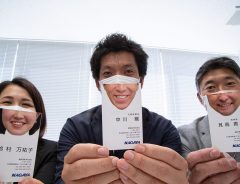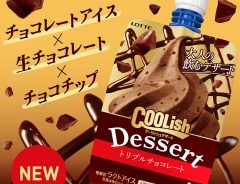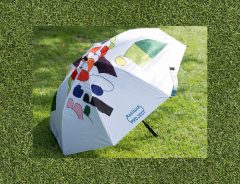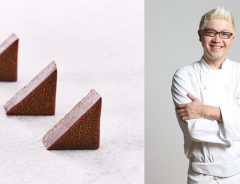
Source: © Grape
Unused Valentine’s Day chocolate recycled thanks to Japanese food waste reduction service
- Source:
- © PR Times, Inc.
- Tags:
- chocolate / food waste / Loss Zero / SDGs / Sogo Yokohama / sustainable
Related Article
-

Godiva and Japanese coffee house end “poop sweets” menu collaboration due to popularity
-

Japanese printing company’s witty business cards reveal the smile behind your mask
-

Coolish’s new Triple Chocolate ice cream is chock-full of chocolaty goodness
-

Tokyo’s Sunshine City provides umbrella rental service for those seeking shade in summer & fall
-

Sustainable and environmentally friendly; Mitsubishi Shipbuilding launches Ferry Kyoto
-

In Time For Valentine’s Day, Hironobu Tsujiguchi Startlingly Blends Two Aphrodisiacs In One


Although they sell very well around Valentine's Day and White Day, chocolates are obviously enjoyed throughout the year. It seems like new chocolate sweets appear almost every day in Japan, from simple ones you can buy at convenience stores to high-end chocolates sold at specialty stores.
However, with so much chocolate being made and distributed in stores, sometimes ingredients don't get utilized and finished products don't always end up in customers' hands.
In Japan, where 6.12 million tons of food are wasted every year, more attention has been placed on food waste in recent years, and the chocolate industry is no exception.
Sustainable Chocolate "Re:You"
"Re:You" is Japan's first chocolate product that tackles the problem of chocolate food waste, allowing consumers to engage in social contribution just by eating it.
A two-pronged approach to reducing food loss
The chocolate market in Japan is said to be worth 550 billion JPY a year. Some of the ingredients imported into Japan to meet the demands of pastry chefs and manufacturers remain unused even though they are still within their expiration dates.
To address this problem, Loss Zero, a venture company focusing on reducing food waste, attempted to create Japan's first distribution channel for unused chocolate ingredients.
© Loss Zero
In the chart above, Loss Zero explains the "5 happy" cycle. From the upper left and going clockwise, leftover raw materials are used to make Re:You chocolate (happy producers), which is then distributed and enjoyed (happy consumers). A portion of proceeds are donated to food kitchens for needy children (happy children). Moreover, the reduction in food waste enabled by this initiative contributes to the environment (happy Earth).
Loss Zero focuses on "reducing food waste and preventing food waste" by converting unused raw materials into products and delivering them directly to consumers.
Moreover, by making effective use of the food waste that has been generated, they manage to take a two-pronged approach: preventing food loss before it occurs, and sharing it when it does occur.
Chocolates made with the finest ingredients
Loss Zero's "Re:You" chocolates contain both ruby chocolate and dark chocolate and are available in two types, both costing 3,000 JPY: A set of two chocolates studded with nuts and dried fruits (buy online), or a set of four plain chocolate bars (buy online).
© Loss Zero
Both the ruby and dark varieties are made by Barry Callebaut, a company located in the heart of Belgium, the home of chocolate.
The company's chocolates are popular for their well-balanced dark cocoa flavor, made from only the finest ingredients.
As for ruby chocolate, it is said to be the "fourth type of chocolate" following dark, milk, and white chocolate, and its popularity has been increasing in recent years.
Their dark chocolate comes from São Tomé Island in Africa. It is a high-cacao couverture with 70% cacao content.
Event coming up at Sogo Yokohama
Between March 24th, and 29th, 2021, Beautiful Smile Inc., which operates the Loss Zero venture, and Sogo & Seibu Co., Ltd., which operates the Yokohama Sogo department store, will collaborate on a food sharing project during an SDGs-themed event.
Customers who visit during the event will be able to buy "Re:You" chocolates, as well as products made from unsold chocolates and sweets from Valentine's Day, White Day, and other occasions, food products that were destined for the dustbins as a result of the pandemic but were recuperated and reused, and other recycled foods.
Seven to eight university students from educational facilities in the Tokyo metropolitan area who are highly interested in the problem of food waste are participating in online study sessions to prepare themselves for the event, during which they will volunteer their time by informing consumers about food waste. In the process, they will gain valuable experience and polish their customer-facing skills at the same time.
Details:
Links